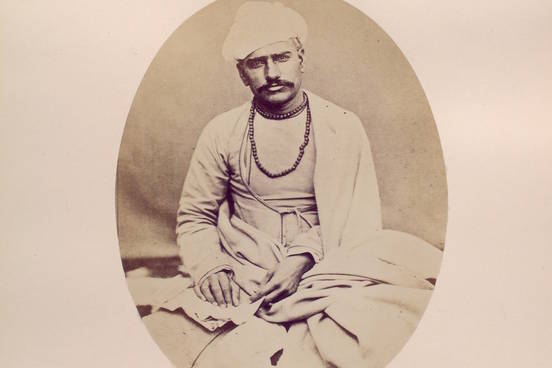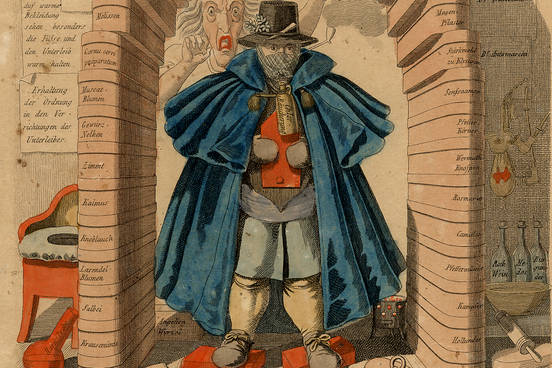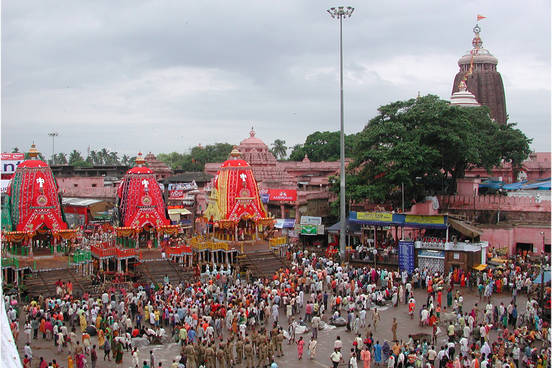
Pajamas
Definition: a loose usually two-piece lightweight suit designed especially for sleeping or lounging
Pajamas comes from the Hindi and Urdu pājāma, which in turn comes from the Persian words for “leg” (pā) and “garment” (jāma). The “leg-garment” sense of the word’s etymology may be seen in its earliest use in English, in the beginning of the 19th century, as it first was used to simply mean “pants.” After Europeans living in Asia adopted the loose-fitting pants, the word began to be used for clothes that one slept in.
Dear Henry: My children wear their underwear under their pajamas at night. Their grandmother says this is wrong to do.
—Life Magazine, 11 Jan., 1963

Shampoo
Definition: to wash (as the hair) with soap and water or with a special preparation
The word shampoo had a markedly different meaning when it first entered the English language in the middle of the 18th century. It comes from the Hindi and Urdu cā̃po, which is the imperative of cā̃pnā (“to press, massage”), and in its earliest use retained the meaning of “massage.” The sense of shampoo meaning “to wash the hair of” did not enter common use until the middle of the 19th century.
Shampooing is an operation not known in Europe, and is peculiar to the Chinese, which I had once the curiosity to go through, and for which I paid but a trifle.
—Charles Frederick Noble, A Voyage to the East Indies, 1765

Pundit
Definition: A person who gives opinions in an authoritative manner usually through the mass media; a critic
In India, pundit still means "a wise or learned man." The original pundits were highly respected teachers and leaders. Their title was taken from the Hindi word pandit, a term of respect for a wise person that itself derives from the Sanskrit pandita, meaning "learned." English speakers began using the form pundit specifically to refer to those Hindu sages as long ago as the 1600s. By the 1800s, they had also extended the term to refer to other sagacious individuals, and now pundit is often used with a hint of sarcasm to refer to informed opinion makers such as political commentators, financial analysts, and newspaper columnists who boldly share their views on just about any subject that lies within their areas of expertise.
We are emerging from a brief historical phase when some foolish pundits argued that national governments were of diminishing importance in our new world, dominated by the "market state" rather than the nation state.
Max Hastings, The Guardian (London, UK), 24 Nov. 2008
Juggernaut came to the English language through stories of the Hindu god Vishnu—Jagannāth is one of his titles. At an annual festival in the city of Puri, objects representing Vishnu and his siblings are transported in enormous, lavishly decorated chariots. The festival is crowded with worshippers, and over the centuries there have been instances of pilgrims getting crushed. Travelers to India exaggerated these stories, and so the legend of fanatics throwing themselves before the rolling juggernaut to die was born.
This led to the word being used in a highly figurative fashion, referring both to a large, heavy vehicle (chiefly in British usage), or to any seemingly inexorable force. From very early on, juggernaut proved to be useful when describing political movements.
Surely, this man does not advise the federalists of this state to march in the rear and bend their knees to the great Juggernaut of democracy!
—The Maryland Gazette [Annapolis, MD], 30 August 1821I do not hold, Mr. Editor, a share of bank stock, not do I apprehend myself to be more likely to bow before the shrine of either a political or pecuniary “Juggernaut” than this vehement foe to “monied aristocracy.”
—The New York Evening Post, 15 April 1822

Bungalow
Definition: a one-storied house with a low-pitched roof; also: a house having one and a half stories and usually a front porch
Bungalow comes from the Hindi and Urdu baṅglā and banglā, words which mean, literally, “in the Bengal style (of a house).” In its original use bungalow referred specifically to a lightly-built single-story house, usually with a thatched roof, found in the Far East. The word then came to take on a series of broadened meanings, including referring to homes that could be solidly built, have one and a half stories, or refer to a cottage that is intended primarily as a summer residence.
This one had no family, and his residence was a small, squalid bungalow of bamboo, etc., and in thorough keeping with the character of its owner.
—Boys of England, A Young Gentleman’s Journal, 1 Mar., 1870

Cummerbund
Definition: a wide piece of cloth (such as silk) that is worn around the waist beneath the jacket of a man who is formally dressed
The cummerbund, that broad swath of cloth which serves to somewhat restrict the girth of overweight tuxedo wearers, comes from the Hindi and Urdu word kamarband, which is itself from the Persian words for “waist” (kamar) and “band” (band). In the 19th century there was a medical view that the cummerbund could serve to ward off numerous ailments, such as dysentery and cholera.
Although by 1900 the cummerbund was no longer worn to prevent cholera, it continued to be worn as protection against dysentery, diarrhea, and liver disorders, and was widely believed to maintain the bowels in good working order.
—Bernard S. Cohn, Colonialism and Its Forms of Knowledge, 1996

Ganja
Definition: a potent and selected preparation of marijuana used especially for smoking
Ganja is not only one of the most common of our language’s many synonyms for marijuana, it is also possibly the oldest. Ganja comes from the Hindi gā̃jā & Urdu gānjā (which in turn are from the Sanskrit word for hemp, gañjā), and has been in use since at least 1689.
No manner of duties or customs was allowed to be exacted from any article brought into camp, excepting country-arrack, opium, ganja, or bhang, and toddy.
—Arthur Wellesley, 1st Duke of Wellington, Supplementary Despatches, 1800 (from Stanford Dict. Anglicised Words & Phrases, 1892)
Definition: a light fabric of linen, cotton, or rayon usually striped and slightly puckered
Seersucker, the wrinkled and striped fabric that has become associated with preppies and suit-wearers of the American South, has absolutely nothing to do with seers or with suckers. The word came to English from the Hindi śīr-śakkar and the Urdu shīrshakar, which both have the literal meaning of “milk and sugar.”
As if it were yesterday I can see him. I was wearing a cheap seersucker suit. He took a smouldering, foul-smelling stogey out from behind a badly singed cauliflower ear, and wherever the dreaded I-word appeared in my copy, "TK" burned a hole in the yellow paper.
—David Macfarlane, The Globe and Mail (Toronto, Ont.), 12 Oct. 1998

Nabob
Definition: a very rich or important person
Nabob would possibly not have been as common a word as it is today (which, to be honest, is still not all that common), had it not been introduced in 1970 as part of an alliterative phrase by William Safire, acting as speechwriter for Vice-President Spiro Agnew: “nattering nabobs of negativism.” The nabobs that Agnew and Safire were referring to were the members of the press, which was a rather significant departure from the word’s original meaning. Nabob was introduced into English at the beginning of the 17th century, taken from an honorary title in the Mogul Empire of India. The provincial governors of this state had the Urdu title of nawab, which was reported as nawbob in Robert Coverte’s 1612 account A true and almost incredible report of an Englishman that travelled by land throw many unknowne kingdoms.
Unveiling new alliterative categories in his growing lexicon of political enemies, Agnew attacked these liberals as “nattering nabobs negativism." Thursday he had called them “caterwauling critics.”
Matthew V. Storin, The Boston Globe, 12 Sept. 1970

Dungarees
Definition: Plural: clothes made usually of blue denim
Considering the extent to which blue jeans of every variety are associated with the United States, it is interesting to note that many of the words associated with these kinds of pants are from elsewhere. The word denim takes its name from the town of Nîmes, and the longer version of the blue jeans, dungarees, come from the Hindi dũgrī and Urdu dungrī.
He cast into the limbo of things done with his coarse “cumlies,” rough “dungarees,” and other country clothing, and burst out into “Europe-muster” linen, tweeds, and serges.
—London Society, June 1881

Prepone
Word We're Watching: An Indian English word meaning "to move to an earlier time"







